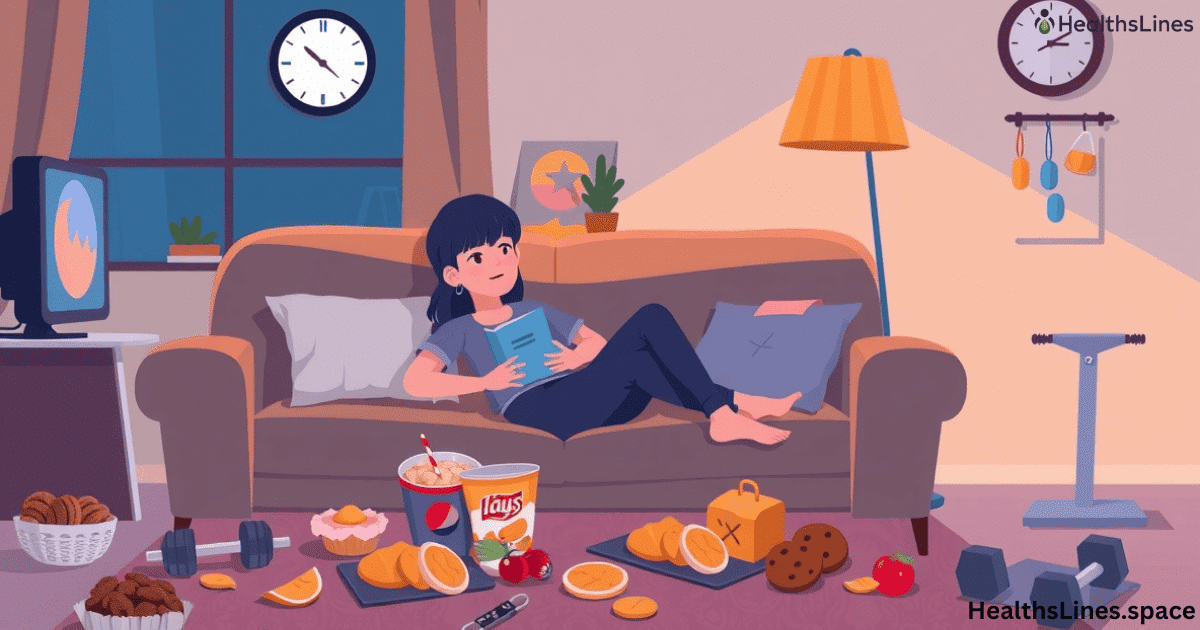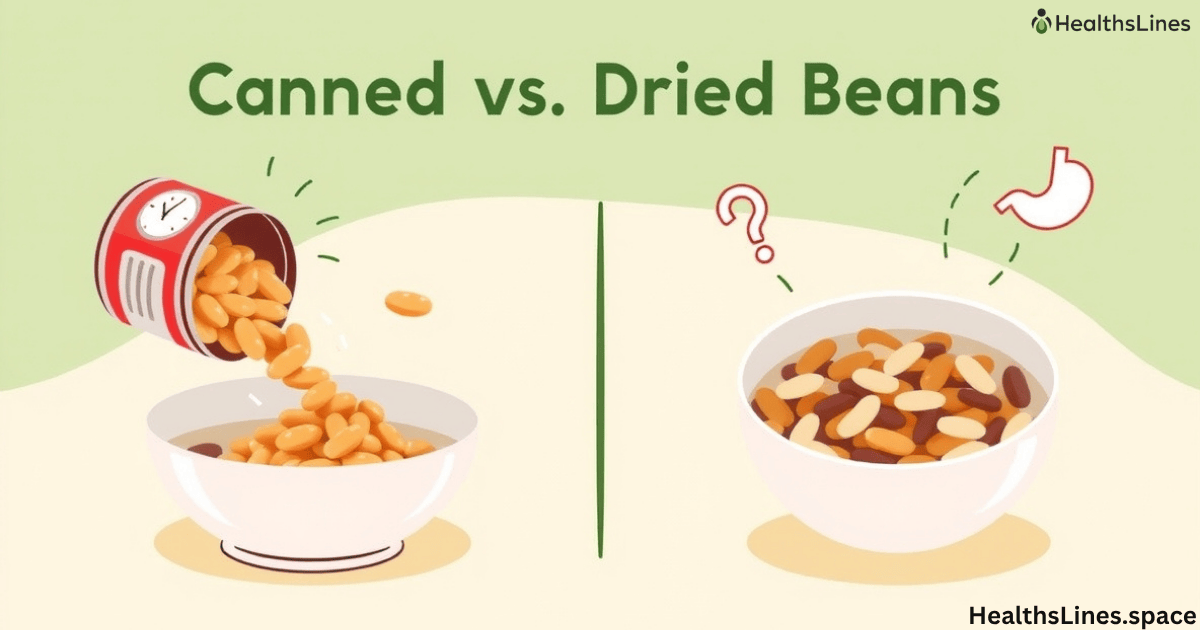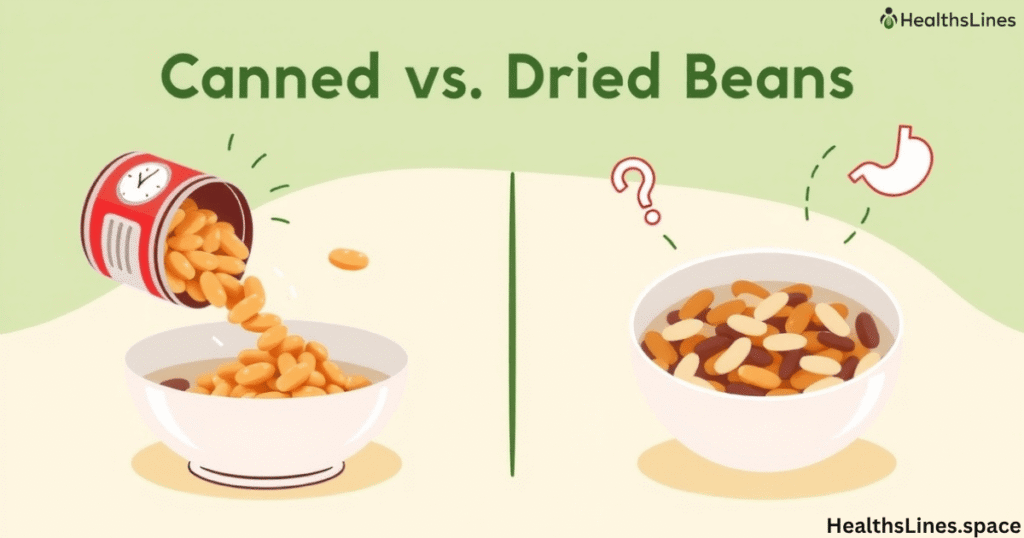Losing weight is not just about what you eat during the day. The truth is that your evening habits weight loss connection is much stronger than most people think. Small choices at night can quietly ruin progress. Science shows that your body handles food, sleep, and stress differently in the evening. That’s why the wrong nighttime routines can block fat loss even if you eat well in the morning.
This guide takes a close look at bad evening habits that affect metabolism and fat storage. You’ll also see how sleep and meal timing play a role. By the end, you’ll learn how to turn these habits that sabotage weight loss into healthy ones. With the right approach, your evenings can support your journey instead of holding it back.
12 Evening Habits That Secretly Sabotage Progress
Eating Large Dinners Late at Night
Heavy dinners are one of the worst weight loss mistakes at night. When you eat a big meal before sleep, your body focuses on digestion instead of repair and fat burning. Research links large dinners and digestion problems with weight gain. Insulin spikes at night also increase fat storage.
Case studies show that people who shift calories earlier in the day lose more fat than those who eat most of their calories at night. A better evening routine for weight loss includes lighter meals with more protein and vegetables. That way, your metabolism can work in your favor.
Snacking on Sugary Foods or Desserts
Late desserts may feel harmless, but sugary snacks before bed often trigger cravings. They push blood sugar levels up, then drop them quickly. That leads to more hunger the next morning. Over time, it fuels fat storage and disrupts hormones like insulin and leptin.
Studies from the American Journal of Clinical Nutrition confirm that eating sweets late at night is linked with higher body fat percentages. Replacing desserts with fruit or Greek yogurt supports best evening habits for weight loss.
Eating Right Before Sleep
Many people wonder, does eating late at night cause fat gain? The answer is yes, especially when meals are heavy or carb-rich. Eating too close to bedtime disrupts sleep and raises the risk of acid reflux. Poor digestion at night reduces calorie burn and slows metabolism.
A simple change is finishing dinner at least two to three hours before bed. This small shift helps digestion and keeps your body in a better fat-burning state during sleep.
Distracted Eating While Watching TV or Using Phones
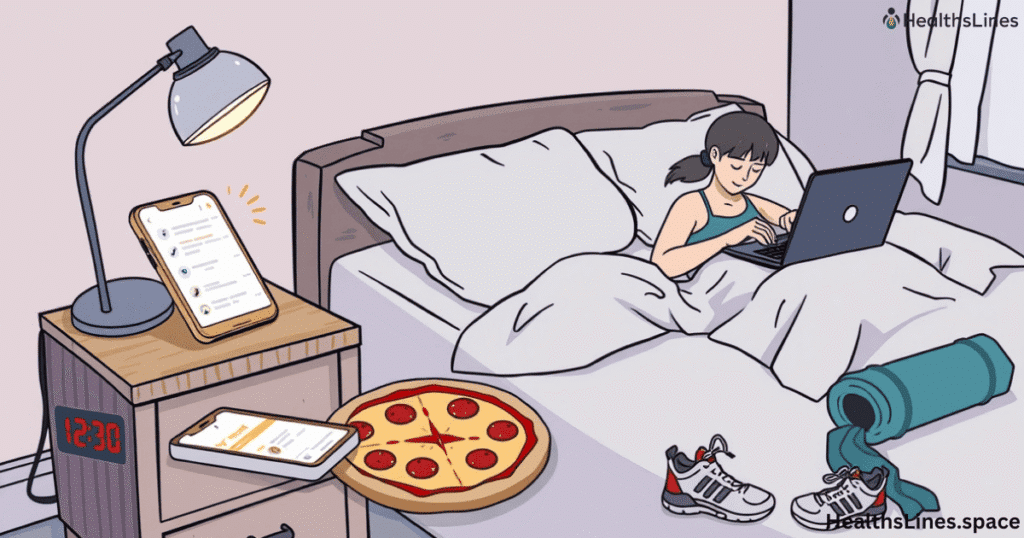
Mindless eating is one of the most ignored habits that sabotage weight loss. Studies show that distracted eating in front of TV leads to higher calorie intake. People who eat while scrolling or watching shows underestimate portion sizes and feel less satisfied.
Practicing mindful eating habits at dinner allows your brain to recognize fullness. A 2019 review confirmed that mindful eaters lose more weight compared to distracted eaters. Eating without screens is a key part of a successful evening routine for weight loss.
Drinking Alcohol in the Evening
Many underestimate the impact of alcohol on fat loss. Drinking wine, beer, or cocktails before bed slows metabolism. It also increases cravings and lowers sleep quality. Research on alcohol and weight loss shows that alcohol calories are burned first, while fat storage increases.
For example, a study in Obesity Research found that moderate evening drinking slowed fat oxidation overnight. Reducing alcohol or choosing alcohol-free evenings supports the best bedtime routine to lose weight.
Having Caffeine After 3 PM
Coffee or energy drinks in the late afternoon may keep you awake, but they also raise cortisol. This hormone slows fat burning and increases belly fat over time. Poor caffeine and sleep quality balance is a major reason behind weight loss and sleep habits failing.
Caffeine can stay in the body for six to eight hours. That means a cup at 4 PM may still affect you at midnight. Switching to herbal teas helps reduce this nighttime routine and weight loss mistake.
Skipping Meal Prep for the Next Day
Not planning breakfast and lunch the night before sets you up for failure. Without prep, you may grab fast food or sugary snacks the next day. Poor planning leads to extra calories and stress eating. Meal prep for healthy eating makes mornings easier and supports weight goals.
A study from the Journal of Nutrition Education and Behavior found that meal planners had healthier diets and lower body weight. This proves that planning is part of the best evening habits for weight loss.
Doing Intense Workouts Too Close to Bedtime
Exercise helps burn calories, but timing matters. Intense workouts before bedtime can raise adrenaline and body temperature, making it hard to sleep. Poor rest means more cravings and slower metabolism the next day.
Instead, try light activities like walking after dinner. Studies show that walking after dinner for better digestion improves blood sugar control and sleep. This supports fat burning without disrupting rest.
Staying Sedentary After Dinner
Sitting for long hours after dinner affects blood sugar control and calorie burning. A sedentary lifestyle after dinner keeps your body in storage mode. Even if you eat well, the lack of movement reduces fat loss.
Simple changes help. A short 15-minute walk or stretching improves digestion and metabolism. This small step turns bad nighttime routines and weight loss mistakes into positive ones.
Lack of a Consistent Dinner and Sleep Routine
Your body follows a circadian rhythm that affects hormones, metabolism, and digestion. Skipping consistent schedules confuses these systems. A consistent sleep schedule for weight loss is proven to improve fat burning.
Research shows that people with irregular sleep and dinner times struggle more with cravings and higher body mass index. Building routine signals your body to manage hormones like leptin, ghrelin, and cortisol effectively.
Ignoring Good Sleep Hygiene Practices
Poor sleep hygiene and weight gain are closely linked. Blue light from phones, noisy environments, and stress make it harder to fall asleep. This disrupts fat-burning hormones. Lack of deep sleep also raises ghrelin, the hunger hormone, and lowers leptin, the fullness hormone.
Fixing sleep hygiene is one of the most effective evening habits weight loss solutions. Creating a calming routine with dim lights, no screens, and relaxation helps your body recover.
Going to Bed Too Late
Going to bed too late reduces total sleep time, and that disrupts weight control. Studies prove that sleep-deprived people consume more calories and crave sugary foods. Short sleep changes how insulin and cortisol work, raising fat storage.
An early bedtime supports metabolism and fat burning at night. It balances hormones and lowers stress, which is key for weight management. Even an extra hour of sleep can boost fat loss.
How to Build Weight-Loss Friendly Evening Habits
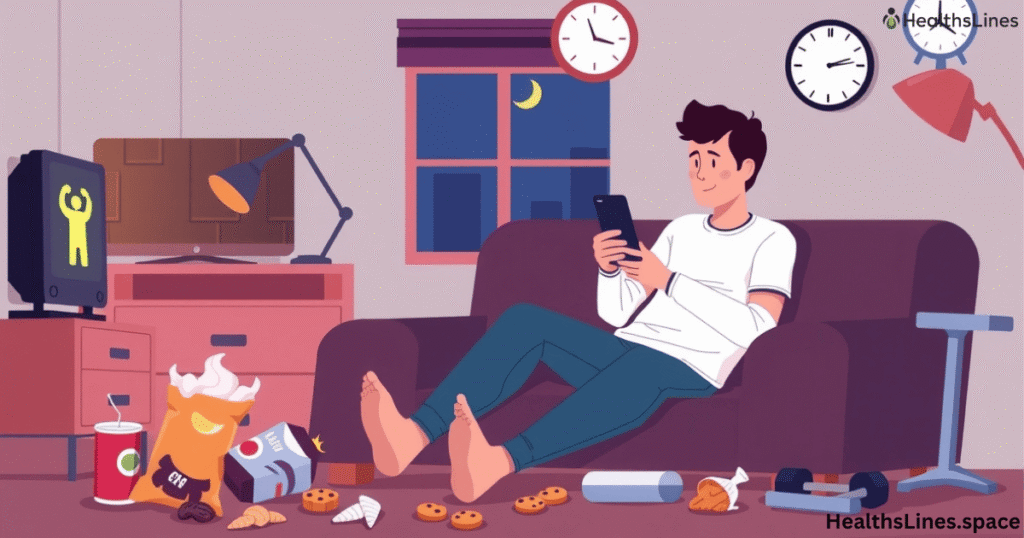
Healthy changes at night don’t have to be complex. Replacing heavy dinners with lighter meals, avoiding late sugar, and preparing meals for the next day create lasting results. Adding short walks after dinner and setting a regular bedtime are also simple, powerful steps.
The best evening routine for weight loss combines mindful eating, limited alcohol, and strong sleep hygiene. Together, these practices boost metabolism and control hunger hormones. Over time, small evening choices add up to major fat loss success.
Case Study: Evening Habits and Fat Loss
| Habit Change | Result After 8 Weeks |
| Reduced heavy dinners to lighter meals | Lost 6 lbs |
| Swapped desserts for fruit | Lower sugar cravings |
| Walked after dinner daily | Improved digestion, lost 4 lbs |
| Kept a strict bedtime | Better sleep, lost 5 lbs |
When to Seek Professional Guidance
Sometimes habits alone aren’t enough. If you’ve fixed your bad evening habits but still see no progress, it’s time to consult experts. A doctor can check hormone imbalances like thyroid issues. A dietitian can create meal plans that fit your lifestyle. A sleep specialist may help if insomnia affects your weight loss and sleep habits.
Seeking help early prevents frustration and ensures your nighttime routines and weight loss efforts stay effective.
Final Thoughts
Evenings are a hidden factor in weight loss. Simple choices like what you eat, drink, and when you sleep shape metabolism. Many people focus only on workouts and diets during the day, but the worst nighttime habits for losing weight can undo it all.
Shifting to the best evening habits for weight loss doesn’t mean perfection. It means making consistent choices that align with your goals. By improving sleep, meal timing, and mindful eating, your nights can finally support your fat loss journey.
